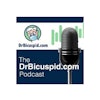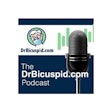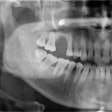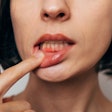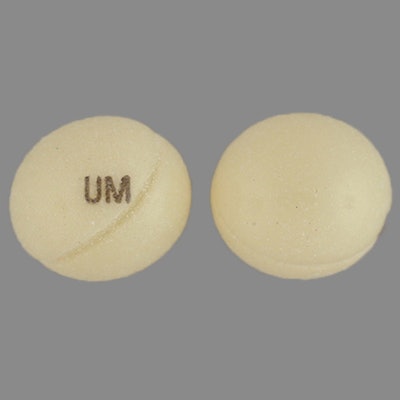
What if you could give your patients a pill to treat sleep apnea? Existing therapies for the condition have produced mixed results, and there is arguably an unmet need for more effective therapies. However, new research on the use of a cannabinoid antinausea treatment, dronabinol, for sleep apnea shows promise.
Researchers found that some factors related to obstructive sleep apnea (OSA) improved after patients were treated with dronabinol, a pill based on a cannabinoid agent, although one measure -- objective sleepiness -- did not.
"These findings support the therapeutic potential of cannabinoids in patients with OSA," they wrote in their study published in the journal Sleep (April 28, 2017, Vol. 40:suppl 1, pp. A207-A208) and presented at the Sleep 2017 conference in Boston in June.
The lead researchers were David Carley, PhD, a professor emeritus at the Center for Narcolepsy, Sleep and Health Research at the University of Illinois at Chicago (UIC), and Phyllis Zee, MD, PhD, the chief of sleep medicine and a professor of neurology at Northwestern University in Evanston, IL.
'I want a new drug'
Fully effective and acceptable treatments are not available for obstructive sleep apnea, and neither are approved drug therapies for the condition, the study authors noted. However, an estimated 22 million Americans have OSA, with the majority being undiagnosed. People with OSA are also at greater risk of coronary heart disease, stroke, high blood pressure, and type 2 diabetes.
“These findings support the therapeutic potential of cannabinoids in patients with OSA.”
A previous proof-of-concept study conducted by Dr. Carley and his colleagues in 17 OSA patients over 21 days found that daily treatment with 2.5 mg to 10 mg of the dronabinol cannabinoid agent was safe and well-tolerated, and it led to a significant reduction in the Apnea Hypopnea Index, a measure of sleep apnea severity (Frontiers in Psychiatry, January 22, 2013).
To expand on their research, Dr. Carley and Dr. Zee obtained a federal grant to conduct the Pharmacotherapy of Apnea by Cannabimimetic Enhancement (PACE) study. The results presented at the Sleep 2017 conference are the initial part of this work.
Dronabinol is currently marketed under the brand name Marinol (AbbVie) and approved by the U.S. Food and Drug Administration to treat nausea and vomiting in chemotherapy patients and manage appetite loss in AIDS patients. It contains synthetic delta-9-tetrahydrocannabinol (delta-9-THC), which is a naturally occurring component of Cannabis sativa L., a type of marijuana.
The University of Illinois at Chicago has licensed intellectual property related to the dronabinol sleep apnea research to RespireRx Pharmaceuticals.
At the Sleep conference, the researchers reported findings from a fully blinded, two-center, randomized, placebo-controlled phase II trial on the use of dronabinol in 56 adults with OSA. Inclusion criteria also required the following:
- Body mass index (BMI) of less than 45
- Epworth Sleepiness Scale score greater than 7
- Apnea Hypopnea Index between 15 and 50 as documented with polysomnography, indicating moderate to severe sleep apnea
Used to determine daytime sleepiness levels, the Epworth Sleepiness Scale consists of eight self-administered questions answered on a four-point scale. The Apnea Hypopnea Index is calculated by dividing the number of apnea or hypopnea events by the number of hours of sleep. Apnea in this case is defined as a pause in breathing of at least 10 seconds that is associated with a decrease in blood oxygenation.
The researchers randomized the study participants to take a placebo, 2.5 mg of dronabinol, or 10 mg of dronabinol one hour before bedtime for six weeks.
All participants underwent repeat in-laboratory polysomnography every two weeks during the treatment period followed by the Maintenance of Wakefulness Test, a measure of daytime alertness. At each visit, they also completed the Epworth Sleepiness Scale and Treatment Satisfaction Questionnaire for Medication, which is designed to assess satisfaction with medication, including effectiveness, side effects, and convenience.
Baseline values were the same in each of the groups for all measures except the sleepiness measurement and age, for which there were some differences.
| Changes in sleep apnea values after cannabinoid treatment | ||
| 2.5 mg dronabinol | 10 mg dronabinol | |
| Degree of sleep apnea (Apnea Hypopnea Index) | -9.7 | -13.2 |
| Sleepiness (Epworth Sleepiness Scale) | N/A | -4.0 |
| Wakefulness (Maintenance of Wakefulnes Test) | N/A | N/A |
At the end of treatment period, the researchers found significant reductions in sleep apnea in both groups that received dronabinol and in sleepiness in the group that received the highest dose. The Apnea Hypopnea Index decreased significantly in the 2.5 mg dronabinol group by 9.7 (p = 0.02) and in the 10 mg dronabinol group by 13.2 (p = 0.001) compared with the placebo group. The Epworth Sleepiness Scale did not change significantly in the placebo or 2.5 mg groups but decreased significantly by 4.0 (p = 0.0001) in the 10 mg group. Neither the Maintenance of Wakefulness Test nor BMI results changed significantly in any group.
The greatest overall satisfaction with treatment was expressed by study participants in the 10 mg dronabinol group (p = 0.02).
"In comparison to placebo, six weeks of treatment by the highest dose of dronabinol (10 mg) was associated with a lower frequency of apneas or hypopneas during sleep, improved subjective sleepiness, and greater overall treatment satisfaction," Dr. Carley stated in a UIC news release. "Neither the amount of sleep nor objective sleepiness improved."
More studies necessary
Nevertheless, results from larger clinical trials are needed, the researchers said. To that end, their efforts are now the largest randomized controlled trial of a drug treatment for sleep apnea conducted to date and the first funded by the National Institutes of Health.
"By providing a path toward the first viable obstructive sleep apnea drug, our studies could have a major impact on clinical practice," Dr. Carley said. "However, expanded and pivotal clinical trials must still be conducted to fully establish the best approach to cannabinoid therapy in obstructive sleep apnea."



